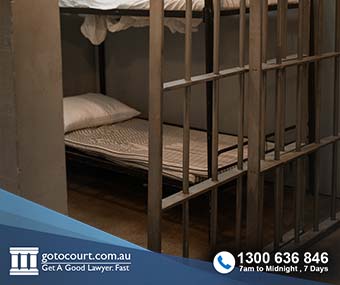Magistrates Court Diversion Program in South Australia
Offenders with mental health problems are often dealt with by the Magistrates Court Diversion Program in South Australia. It is available at prescribed courts and is essentially the Mental Health Court. In some locations it has been replaced by, or is held with, the Magistrates Court Treatment Intervention Program. That program deals with offenders with a dual diagnosis of mental health and substance abuse problems.
The diversion program is for adults who have an:
- Impaired intellectual or mental functioning resulting from a mental illness.
- An intellectual disability.
- An acquired brain injury or a neurological disorder.
Program criteria
To be eligible, the offender must have been charged with and have pleaded guilty to a summary offence or a minor indictable offence (or the most serious of those offences if there is more than one charge) that is being heard in the Magistrates Court in South Australia. There has to be some connection between their criminal behaviour and the mental impairment. Inclusion in the program is voluntary. If accepted into the program, the charges are adjourned for about six months for the offender to complete the program. The offender will return to court approximately every two months during the program for their progress to be monitored.
Aims of the program
It is hoped that the program will achieve the following outcomes for offenders who have a mental impairment;
- Give access to early assessment and intervention that will address their mental health or disability needs to try to prevent future offences.
- Help to identify and manage offenders with a mental impairment in the court system and streamline dealings with them.
- Provide an option in the Magistrates Court for offenders who, under the Criminal Law Consolidation Act (1935), could otherwise plead a mental impairment defence.
A report on how successful the program is can be is found at the Office of Crime Statistics and Research website.
The program
If an offender agrees to take part in the Program their matter is adjourned for an eligibility assessment, a treatment plan, and a report to be prepared. If they are assessed as suitable, their matter will be adjourned for about two months. They are assigned a case manager who will assist and support them in the treatment plan. The case manager’s role is to monitor their progress and provide a review report to the court at every review date. The offender usually attends the review hearings, but may be excused.
While on the program the offender is linked to services in the community, including mental health services. Their involvement in the services and progress is reported back to the Magistrate, the police and their lawyers who can use this information in their dealings with the case. The Magistrate reviews their progress approximately every two months to reinforce and reward compliance with the treatment and positive lifestyle changes. The Magistrate can take alternative action if the interventions are not working or if the offender is not complying with them.
Program staff
The program staff are organised into the Clinical Advising team and the Case Management team. The Clinical Advising team consists of psychologists with expertise in both forensic and general psychological assessments. They undertake assessments of offenders who are referred to the program. They provide reports and expert advice about an offender’s suitability for the program and their treatment to the court. They will also develop an intervention plan for the offender.
The Case Managers are people with social work or related human service backgrounds. Their role is to liaise with the service providers to make sure that they understand the aims of the program and the services that they need to provide and to link offenders with relevant services.
Sentencing
At the final hearing, the Magistrate makes a decision on the appropriate sentence for the matters. They will take into account the offenders involvement in the Program. Depending on the nature of the offences, the charges may be dismissed without conviction and/or penalty.
If you require legal advice or representation in any legal matter, please contact Go To Court Lawyers.







